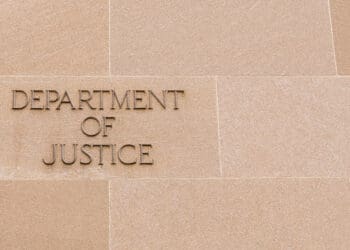Anyone in corporate leadership who may be truly concerned with ensuring their companies have an effective ethics and compliance program can learn a lot from FIFA, the Zurich, Switzerland-based governing body of world soccer. Indeed, the recent controversies surrounding FIFA can provide something of a case study concerning the role of leadership in providing for an effective corporate ethics and compliance program. No, really. Of course, one must study FIFA and then take an approach that is precisely the opposite of that which FIFA’s leadership has followed.
By way of background, and for those that are not followers of international soccer, FIFA, led since 1998 by its president, Sepp Blatter, has long been controversial and viewed by many observers as ethically challenged and marked by cronyism and a general lack of transparency concerning its decisions and actions. These criticisms only intensified following FIFA’s decision in December 2010 to award the 2018 World Cup to Russia and the 2022 World Cup to Qatar. These decisions were met with accusations of unfair dealing and bribery and have generally led to even further controversy and public scrutiny of FIFA over the last four years.
As a result of these concerns, American lawyer Michael Garcia, the former U.S. Attorney for the Southern District of New York, was selected to lead an ethics investigation into the process that resulted in the award of the 2018 and 2022 World Cups to Russia and Qatar. Garcia submitted a report of the findings of his investigation to FIFA in early September 2014. Blatter has refused to make the report public, contrary to the stated wishes of Garcia and others, but in mid-November, the head of the adjudicatory chamber of FIFA’s ethics committee, Hans-Joachim Eckert, released a statement summarizing Garcia’s findings. In Eckert’s summary of Garcia’s inquiry, Russia and Qatar were essentially cleared of wrongdoing in connection with the World Cup bids. Almost immediately, Garcia protested that Eckert’s summary “contains numerous materially incomplete and erroneous representations” and stated that he would file an appeal to FIFA. Despite Eckert’s report seeming to clear the award process for the World Cups in 2018 and 2022, FIFA nevertheless filed a criminal complaint earlier this week with the Switzerland attorney general, apparently concerning certain individuals associated with the award of those World Cups. If one reviews any of the well-known and authoritative sets of guidance and principles concerning corporate compliance matters, including the U.S. Federal Sentencing Guidelines, the “Resource Guide to the U.S. Foreign Corrupt Practices Act” by the Department of Justice and the Securities and Exchange Commission, the “Core Elements of an Effective Export Management and Compliance Program” of the Department of Commerce’s Bureau of Industry and Security and the Committee of Sponsoring Organizations of the Treadway Commission’s (COSO’s) core elements of an effective internal control framework, one common theme that emerges is the fundamental importance of setting the proper “tone at the top.” Simply put, without effective leadership, a meaningful ethics and compliance program is not possible, regardless of codes of conduct, committees, written procedures and catchy slogans.
With that in mind, let’s take a closer look at FIFA’s leadership and its role in fostering that organization’s culture. The most frank and insightful analysis of FIFA’s leadership shortcomings comes from Mr. Garcia. Speaking in October to an audience of U.S. lawyers in London, Garcia clearly expressed his views on the two things FIFA must focus on to improve its ethics program: increased transparency and tone at the top.
While Blatter’s refusal to release Garcia’s report to the public is a blow against transparency, in speaking about tone at the top, Garcia told the gathering of lawyers that “the second element an institution like FIFA needs in order to meet the challenge of ethics enforcement is leadership.” Continuing, Garcia described the critical role of leadership in organizational ethics and compliance matters: “What is required is leadership that sends a message that the rules apply to everyone, leadership that wants to understand and learn from any mistakes or missteps the ethics committee may have identified, leadership that makes it clear to everyone – this is what we’ve set up the ethics committee to do, this is why they do it and this is what they’ve done.”
While any company can adopt a code of ethics and compliance, it will mean nothing and will fail to serve as a meaningful set of guiding principles for employees without the existence of an appropriate culture at the company, one where complying with laws, following the rules and having a core belief that acting fairly, openly and transparently is the right thing to do. That type of culture must be fostered and nurtured by the company’s leadership. As Garcia stated, “It’s that kind of leadership that breathes the life into a code of ethics. Because true reform doesn’t come from rules or creating new committee structures. It comes from changing the culture of the organization.”
With the release of Eckert’s summary of Garcia’s findings and its subsequent filing of a criminal complaint, FIFA has only managed to increase the level of controversy surrounding its actions. The public release of Garcia’s full investigation report, as Garcia himself has advocated, would provide the public with needed transparency concerning FIFA’s actions. The saga continues and we will all have to wait and see what happens next and what FIFA’s response will be to both Garcia’s criticism of Eckert’s summary and the general level of public dissatisfaction with FIFA’s actions in steering the world’s most popular sport. In the meantime, however, corporate Boards and their management teams should consider whether they are doing all they can to promote a culture that will allow an ethics and compliance program to flourish. Do they speak forcefully and consistently on the issue of ethics and compliance? Do they hold employees – and themselves – accountable? Do they seek updates and closely monitor the functioning of the compliance program and make periodic enhancements when weaknesses are found or conditions change? Do they communicate their actions, to the extent feasible, to employees? If Boards want their companies to enjoy a strong reputation with their various constituencies, and thus prosper over the long term, then they perhaps can take lessons from FIFA and how the deficiencies in its leadership have led to an erosion in the trust of the very public for which it exists to serve.





![FCPA Enforcement Is Changing; What Does It Mean for Compliance Programs? [Q&A]](https://www.corporatecomplianceinsights.com/wp-content/uploads/2025/02/doj-sign-on-building-350x250.jpg)








